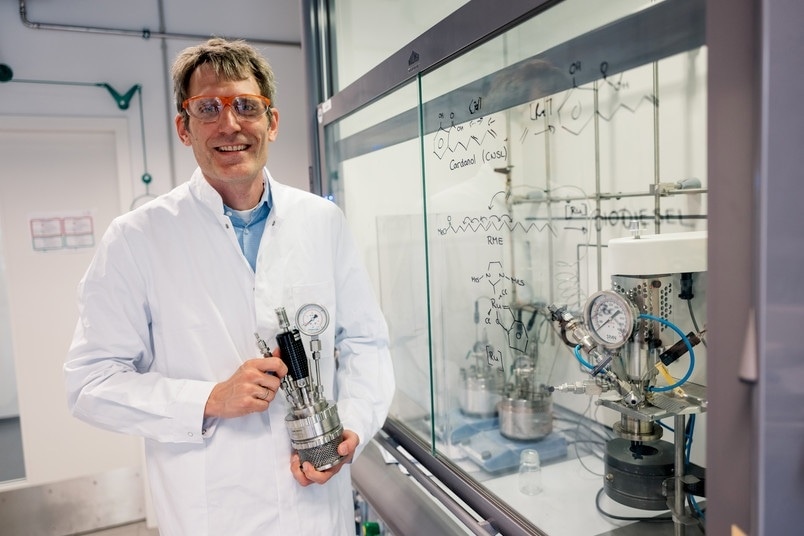Jun 20 2017
Researchers from the Universities of Kaiserslautern, Bochum and Rostock have developed a new method for creating biodiesel. Up until now, in the EU, automotive diesel contains just 7% biodiesel as conventional diesel engines cannot withstand more than that.
 His new biofuel has already worked in a model car: Lukas Gooßen. © RUB, Kramer
His new biofuel has already worked in a model car: Lukas Gooßen. © RUB, Kramer
The Researchers chemically treated a blend of plant oils to produce, at zero energy cost, a biofuel that can be incorporated undiluted in latest diesel engines. Their trick: Bioethylene was used to cleave the commercial rapeseed oil esters. Presently, European biofuel companies mostly manufacture biodiesel from methanol and rapeseed oil.
The Research team was led by Prof Dr. Lukas Gooßen, a member of the cluster of excellence at RUB. They published their findings in the esteemed journal Science Advances. Gooßen has been at the University of Kaiserslautern since 2016.
Challenging target
By 2020, the diesel sold in the EU should have 10% biofuel, a tough target. Biodiesel comprises of long, even hydrocarbon compounds with diverse properties to diesel acquired from mineral oil. For instance, it vaporizes at higher temperatures, which can cause problems with particulate filters and electronic fuel injectors.
The new method allowed the Chemists to tweak the biodiesel’s chemical properties. By incorporating ethylene, which can be produced from bioethanol, they converted the long chains of rapeseed oil esters into a mixture of shorter chains. The new biofuel exhibits diverse ignition and combustion properties. For instance, combustion begins at lower temperatures.
The Gooßen team could show that this new diesel fuel can truly power a self-made model car.
We reached a first milestone. But the way towards commercialization is long and uncertain. The first fuel batch costed much more than 1.000 Euro per liter.
Prof. Dr Lukas Gooßen, Head of the Research team